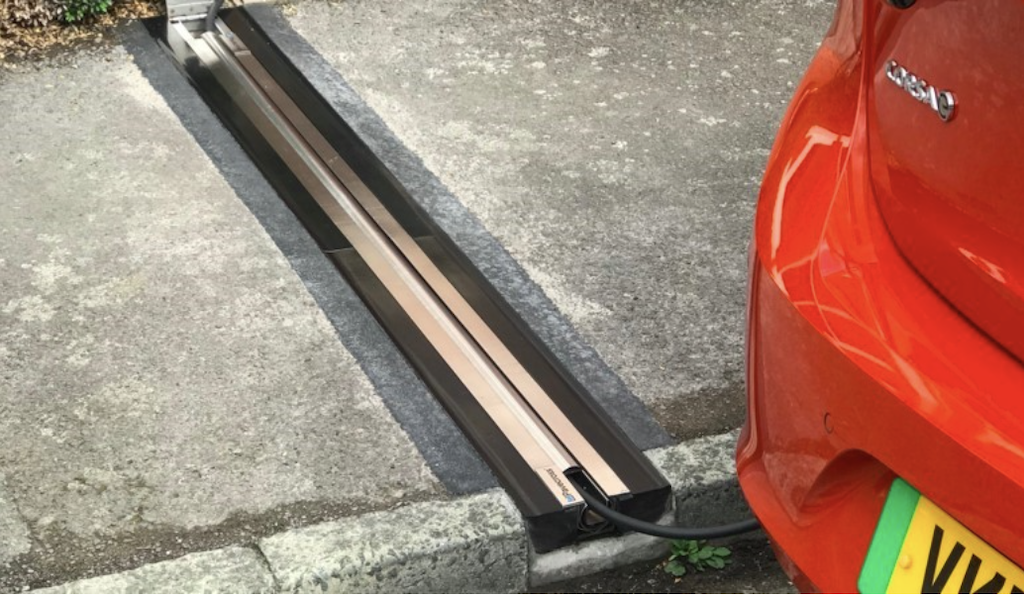More EV drivers to access domestic charging rates and signposting to charging hubs improves
Department for Transport has announced £25m funding to enable at-home electric vehicle charging for households without driveways. The money will primarily support local authorities in providing cross-pavement gulleys that will allow cables to run safely beneath pavements, connecting homes directly to parked vehicles, enabling those without a driveway to tap into cheaper domestic electricity rates.
The funding is part of a broader £63m package of measures announced by the government to boost adoption of electric vehicle which includes an £8m fund to transition the electrification of ambulances and medical fleets across over 200 NHS sites and a major new grant scheme to help businesses install charging points for heavy goods vehicles, vans and coach drivers at depots nationwide.
The scheme to support at-home charging for households without driveways addresses one of the perceived major blockers to greater uptake of electric vehicles, in that charging an EV at home is significantly cheaper – by up to an order of magnitude – than using public charge points, especially those at motorway services.
Fully charging at 60KWh battery at home typically costs around £5 off peak, or £15 at standard rates. Fully charging the same battery on public charge points in towns varies from around £30 to £45 depending on the speed of charging, while the equivalent cost at a motorway service area is typically upwards of £50 and sometimes much more.
Transport Secretary Heidi Alexander said, “We are making it easier and cheaper to own an electric vehicle. We know access to charging is a barrier for people thinking of making the switch, so we are tackling that head on so that everyone – whether or not they have a driveway – can access the benefits of going electric.”
And in a move to reduce range anxiety, Alexander also announced immediate changes which will allow larger EV charging hubs to be signposted from major A-roads for the first time, making it easier for EV drivers to locate charge points during their journey.
Delvin Lane, CEO of charge point operator InstaVolt said, “We are pleased that the government has taken the crucial step of delivering official EV charging signage on the strategic road network – a move we believe will improve consumer confidence and bolster EV adoption. This marks a major milestone for the EV industry and drivers across the UK.
“Our opinion research suggests that the rollout of clear, official signage will make a significant difference—helping EV drivers easily locate public charging points while on the move, and reassuring those considering making the switch to electric vehicles.
“For years, we have emphasised that the UK’s public EV infrastructure is already largely in place, and now this signage will finally showcase it to drivers in a visible, accessible way.”
Ian Johnston, CEO of Osprey added, “Signage impacts all the UK’s drivers because consumers need to see it to believe it. We look forward to continuing to work closely with ministers and officials to achieve clear signage for the hundreds of high-quality EV charging hubs being opened across the nation.”
Vicky Read, CEO of ChargeUK, the trade body for UK’s charging industry, said, “With 82,000 public charge points already installed across the UK, this positive action on strategic road signage will help more drivers see the extensive charging network that’s rapidly being built across the country. This has been a priority for our industry and will boost consumer confidence in making the switch to electric vehicles.”
Edmund King, AA president, said, “There are more public chargers than people realise, but they are often hidden in plain sight. Increasing signs for the public network is vital to help the EV transition as it will create confidence for drivers both now and in the future. It is also great to see more support for those without off-street parking so that they can also benefit from the EV revolution.”

